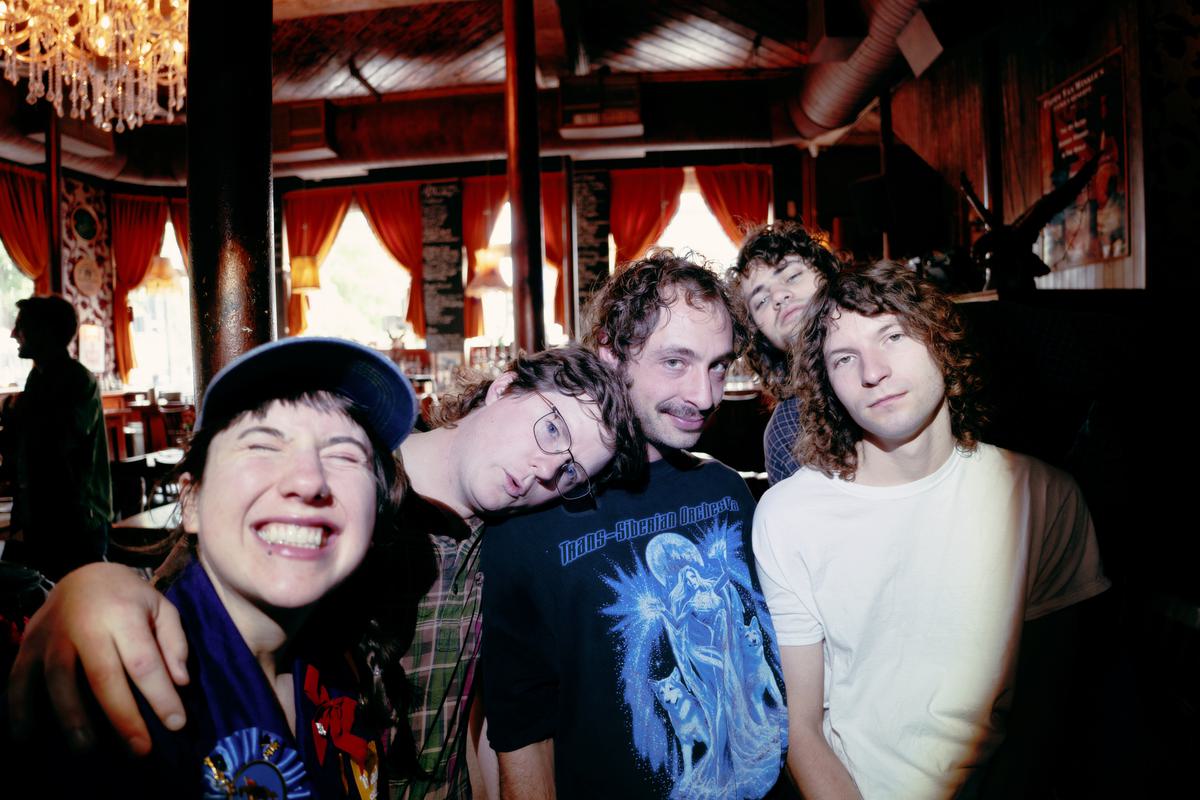
For Wednesday's Karly Hartzman, everything is stories
The songs of Karly Hartzman are rooted in the pathos of smalltown southern USA. Sophie Walker takes a look inside the mind of Wednesday’s central creative force and the architect of one of 2023's best records.
Karly Hartzman knows that time can’t heal a wound you choose to leave open. The sting proves that this thing was once alive, even if she has to dig her nails under the scab to feel it.
“We always started by telling our best stories first, so now that it’s been a while I’ll get to tellin’ you all my worst,” is the promise tied to her band Wednesday’s third album, Rat Saw God. It’s a spit-swear pact, the kind made when you can be trusted with ugliness; to still have faith in the silver among the shrapnel. Its release has marked the final chapter of a three-year transformation for Wednesday which began with five kids from North Carolina with inked arms and unruly kitchen-scissor mullets packing out basements, and ended, on the other side of it all, with one of the most fascinating indie-rock bands in America.
Wednesday’s songs are sometimes like desperate, sweat-soaked nightmares, sometimes tender in the way of a deep purple bruise - but they are always intensely human. Born from the scarred earth of the American South, their sound merges rusty-switchblade shoegaze with the country swoon of a steep-lap guitar. It carries a Gothic sensibility, but not in the way you’ve come to expect. Leave behind your notions of colonial mansions falling into disrepair, haunted by Christ and the old Antebellum promises; Hartzman speaks plainly, and the tales of her particular North Carolina haunts of Greensboro and Asheville have a more terrible kind of beauty because they’re real.
Paired with the sound spirited to life by her bandmates Jake ‘MJ’ Lenderman, Xandy Chelmis, Ethan Baechtold and Allan Miller is Hartzman’s own visceral kind of storytelling. The “Hot Rotten Grass Smell” lingers in your nose, the “piss-coloured bright yellow Fanta” sticks in your throat. Someone’s died in the Planet Fitness parking lot, Bobby and Jimmy sit in the baby pool with lice in their hair, and “the kid from the Jewish family got the preacher’s kid pregnant”. Hers is a casual poetry: half-funny, half-tragic, holding unprocessed memories to light from a numb, out-of-body distance. Writing songs is her way of getting closer, of confronting the things she felt all along.
It's only right that my conversation with Hartzman begins with the kind of gritty, slightly grotesque image that befits her lyrics. “Sorry, I just had to shoot one of those fucking things in my ear to get the wax out,” she smiles. She’s at home in Asheville, a place she rarely is – not since Wednesday signed to Dead Oceans and have been touring Rat Saw God across the States and Europe. “We’ve been on tour for 9 weeks”, a tweet of the band’s reads, like a dispatch from a treacherous expedition to the South Pole. “Being on tour for like, almost three months… I can’t do that again,” reflects Hartzman. “It was so crazy and so fun, but it got hard to enjoy the shows just because we were so exhausted – even though they were our dream, sold-out shows at some big ass venues we’d never have thought we’d play. It was like, ‘Damn, I really would have a good time but I’m about to pass out.’ I’m a huge homebody and an introvert, so it just gets insane in my head. Music is my favourite thing to do, so it’s always worth it, but sometimes I feel like my brain is about to explode.”
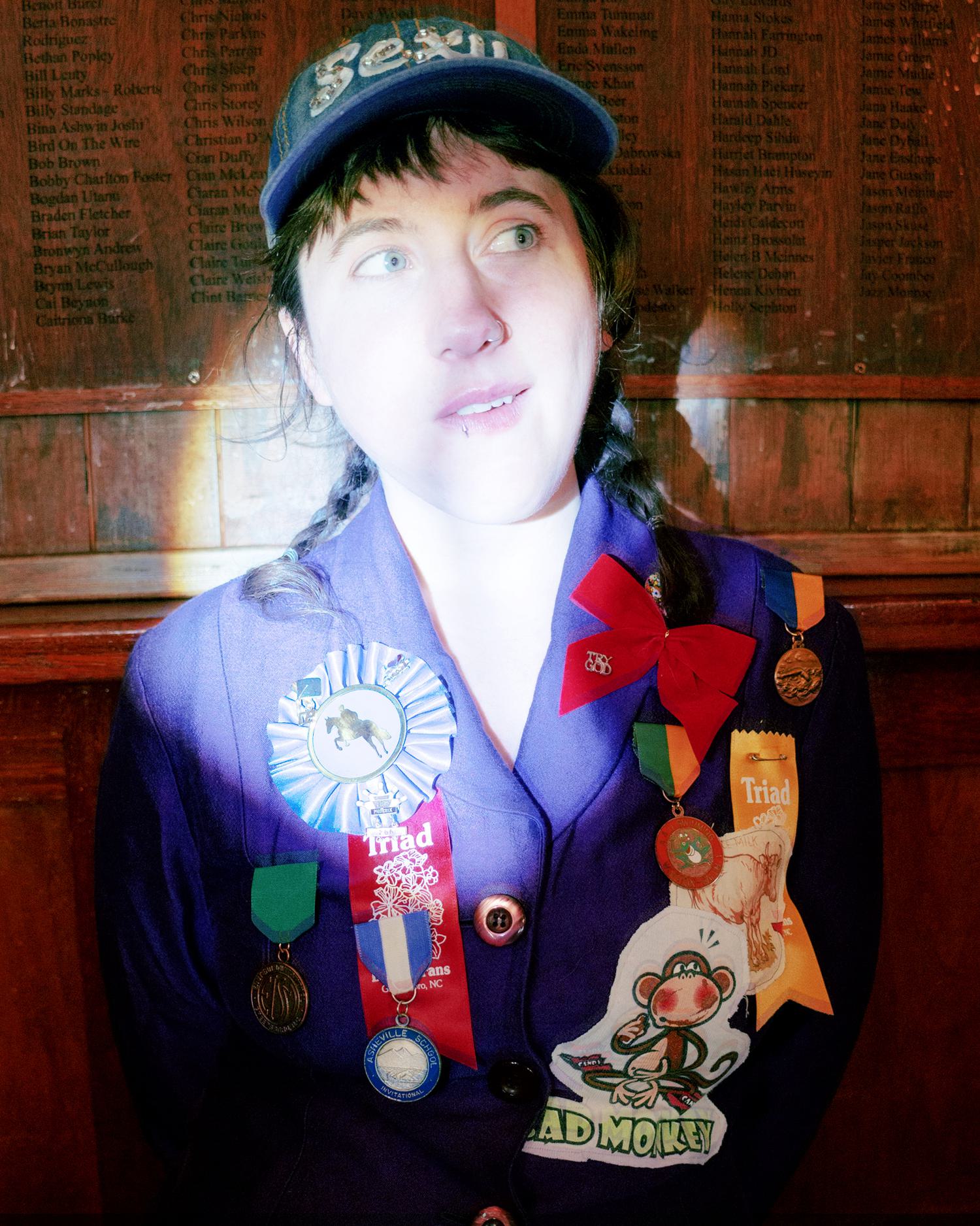
The last show of the tour was on 1 July, a hero’s return to their hometown of Asheville. “Thank god we are home I love this place”, they shared with a picture of a billboard captured through a smudged tour bus window backed against a grey sky, which read, in no uncertain terms: “HELL IS REAL”. Hartzman longed to sit on her porch once again with her guitar and her notebooks, to be in her room with all her collected bric-a-brac, including a mirror she had customised with sweet, unusual things she has scavenged: coloured strings of beads, tiny dolls with matted hair, crucifixes and church magnets.
Her way of writing music is much the same: collecting the detritus of our everyday lives that most of us would cast aside. Wednesday’s music is like a love letter to the American South negotiated out of its unique isolation and barely-concealed cracks – to be at home is fundamental to everything the band do. When Hartzman is away, she jots down her observations on her phone: “Here, let me find something I wrote on tour… Whenever we stopped in a tourist town, I always just noticed the different things people do when they’re frustrated or impatient. I write about that behaviour a lot. But let’s see,” she says, swiping through, “I wrote something about how in all those big cities, everyone has tiny dogs, and about how those dogs always give up in the middle of their walk and ladies end up having to carry them around. I just thought that was a good metaphor for giving up in life. I don’t know if that would ever make it into a lyric, but I think connecting a visual thing to an emotional experience is the bread and butter of what makes a good song.”
But when Hartzman is in Asheville, she fills piles of notebooks. “I usually like to write in public places. I like writing at the mall, or anywhere that isn’t my house because I’ll be too comfortable and won’t be diligent about doing anything. I usually go get coffee or go somewhere with a lot of people walking around, so that way, when I get frustrated or bored or stuck, I can look up at people instead of my phone. I can take a break and look at some shit and then get back into my own little world.” Malls are becoming increasingly strange, liminal spaces; antiquated and in decline. Hartzman likes to sit in the lobby spaces tucked down hallways that no one really walks through anymore. “My favourite store to look into is Claire’s,” she tells me. “I used to get so stoked in there. It’s fun to watch kids run around in there and pick up a bunch of crap. My weakness is still the fuzzy journals – I get those a lot when I run in there.”
These days, she buys her journals from the thrift store. She shows me a Christmas-themed cover with her Drive-By Truckers sticker plastered to it which she is working in right now, and another more recent purchase with a kitten emblazoned on the front which reads in a cursive – distinctly millennial - script: “I’m a troublemaker”. But Rat Saw God was mostly written in a simple, purple composition notebook that her partner and bandmate MJ Lenderman wrote “HEAT” across the front of on a piece of tape. “I think he wanted me to know that what was going on in there were fire lyrics,” she laughs.
Rat Saw God is haunted by memory, casually retracing the past in a way that belies darker depths than Hartzman would first have you believe. “I went to school about three days a week / Watered down all the liquor / And then pissed outside in the street,” she relates with a shrug on “Chosen to Deserve”, before scratching at something a little deeper: “Now all the drugs are gettin’ kinda boring to me / Now everywhere is loneliness and it’s in everything.”
She elaborates, “The way I feel memory in general works is that you’ll bring up one memory and it’ll bring up shit from a completely different time of your life that has this weird thread of connection. I can tonally connect a memory from high school with something that happened yesterday based on how the room felt, if that makes sense.” She draws on “Got Shocked”, which connects an incident when she was electrocuted during band practice with a race car driver who died on TV. “I feel like the modern terminology would be, like, a vibe shift,” she smiles, “but overall, life just gets separated into these tonal spaces. I can be in that room in different periods of my life and connect them.”
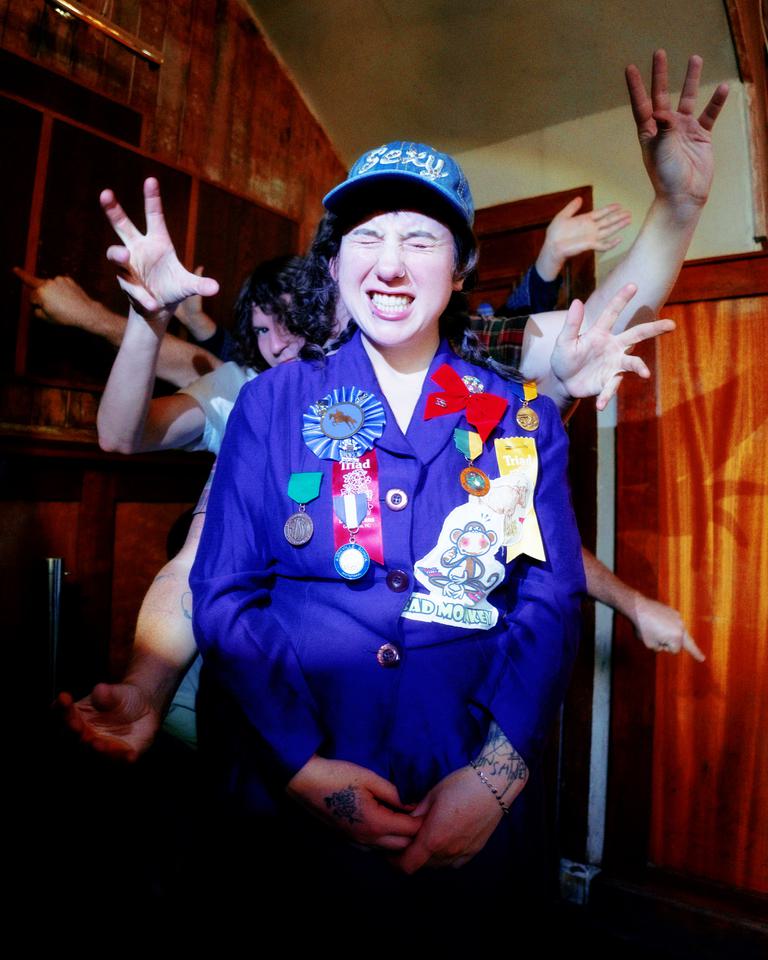
Hartzman’s memories are almost like a series of locked doors, some she wishes she hadn’t opened. “There are times when I go back and I realise it’s a lot worse,” she says. “There are situations I’ve analysed from when I was in high school and someone did something that I didn’t realise was really fucked up. I’m thinking of one specific occasion when I wrote a song about someone which made me realise that they’d done a lot of shit that hurt my friends and scarred a lot of people I know, and we passed it off as a ‘whatever’ thing at the time. Looking closer, it’s like, ‘Damn, this person was fucked up’, and we just let it be.” Sometimes our minds refuse to absorb things as a means of self-protection, I suggest, and Hartzman nods: “I find that, yeah. A lot of what I try to access is definitely stuff my brain kind of just wiped over, for survival.”
“Bull Believer” is the album’s eight-and-a-half-minute behemoth: it crashes and careens in self-destructive shrieks of electric feedback, before retracing the blankness that the grief of losing a close friend at seventeen years old left her with. In its final minutes it spirals into a staggering, bloody wail of anguish which crescendos into a devastating scream - the kind Hartzman was too self-conscious to try in front of her bandmates, preferring to record it alone while they played Tetris downstairs. She unleashed that again and again on tour, but in committing that feeling to record, performing it doesn’t reopen the same wound. “I don’t think about the original memory on stage anymore because I don’t want to put myself through that every night, so I channel it into other things I’m upset about to help mitigate that really intense place in my mind that I sometimes feel I have no control over,” she shares. “Whenever I’ve talked to my mom about my music and she’s worried about whether or not she should be concerned about my well-being, I’m always like, ‘If I’ve had the distance from it to think about it and write the song, that means that I’ve dealt with that thing enough to process it and take something creatively from it.’ I wish everybody could scream like that once a day, it’s really nice.”
Our adolescence is often somewhere between an irreplicable magic and agony. She reflects on that experience on “Chosen to Deserve”: “I used to drink ‘til I threw up at my parents’ house / My friends all took Benadryl ‘til they could see shit crawlin’ up the walls / One of those times my friend took a little too much he had to get his stomach pumped / They took him over to the hospital and told us he was lucky to survive.” The American South is particularly gripped by opioid addiction, social division and intergenerational poverty, and I ask Hartzman why she felt she and her friends were drawn to substance abuse as teenagers. “Boredom,” she answers plainly. “Boredom, and inability. It’s before you have your licence, and it’s such a chaotic time because if someone’s older brother brings you a Four Loko and Benadryl, you’re gonna do it because you can’t drive and you’re not old enough to get legitimately high or drunk. You’re doing the most chaotic shit because it’s literally just what’s there, and you want to do something. That was the cause of 99% of the shit I got into in late middle school, early high school.”
The point where things shifted for Hartzman was when she lost her close friend who she memorialises in “Bull Believer”. She tells me, “If I did any drugs or drink at the time, I would just completely lose it. And I, like, couldn’t… It was just too much. I couldn’t open up a freer side of my brain because I was barely keeping it together, so I had to stop - just so I didn’t feel insane all the time. It’s only recently that I’ve been able to kind of get back into doing stuff. I was stone-cold sober just because I couldn’t really handle breaking down any mental barriers.”
"Most people are full of stories... it’s just a muscle you can train to think about your life."
To experience that kind of loss at seventeen would force you to grow up pretty fast, I surmise. “I mean, yeah…” Hartzman shrugs with characteristic nonchalance. “That kind of stuff happens all the time to people. It was definitely a critical time because you feel like you’re the centre of the universe, and you’re like, ‘Why the fuck did this happen to me? Blah blah blah…’ But this is the stuff that’s happening everywhere, all the time. And then all of a sudden, it just happens to you.”
I wonder what happened to her friends from that era of her life, and she brightly tells me that she ran into the guy who overdosed at a Wednesday show only recently. “He’s doing fine. He’s a normal dude with a girlfriend and a desk job, and he still lives in Greensboro where I grew up,” she says. “But the main girl who was the centre of all my fucked-up shit and all the bad decisions I’ve made has disappeared from the internet. No Instagram, doesn’t even seem to have Facebook like small-town people do. I’m pretty sure she’s still alive, but I just don’t know anything about her life. She was my best friend at the time, and in high school I made out with a guy she was talking to and we never spoke to each other again. I feel like that’s one of my biggest regrets, actually, in my life – not that she was a great friend to have, though. We got into a lot of trouble together. But we were really, really close. But like everything that goes on in high school, you do something bad and everything completely blows up. I have a feeling I’ll just run into her for some reason, but maybe I’m just not supposed to be in touch with her right now.”
Yet, in spite of all of it, Hartzman wouldn’t change a single thing about it. “The cool part about fucking up when you’re young is you don’t have any responsibilities, so it’s kind of okay,” she smiles. “My parents did the same when they were my age, so they completely understood. If anything terrible happened, I could just call them, which isn’t the case for a lot of people. But it all informed the person I am today. If I had to go through this touring lifestyle having no experience with a lot of the shit I did growing up, I would probably implode because there’s so much access to drugs. You’re drinking every night, which I don’t do, luckily – because if I did, I think my health would be in huge decline.”
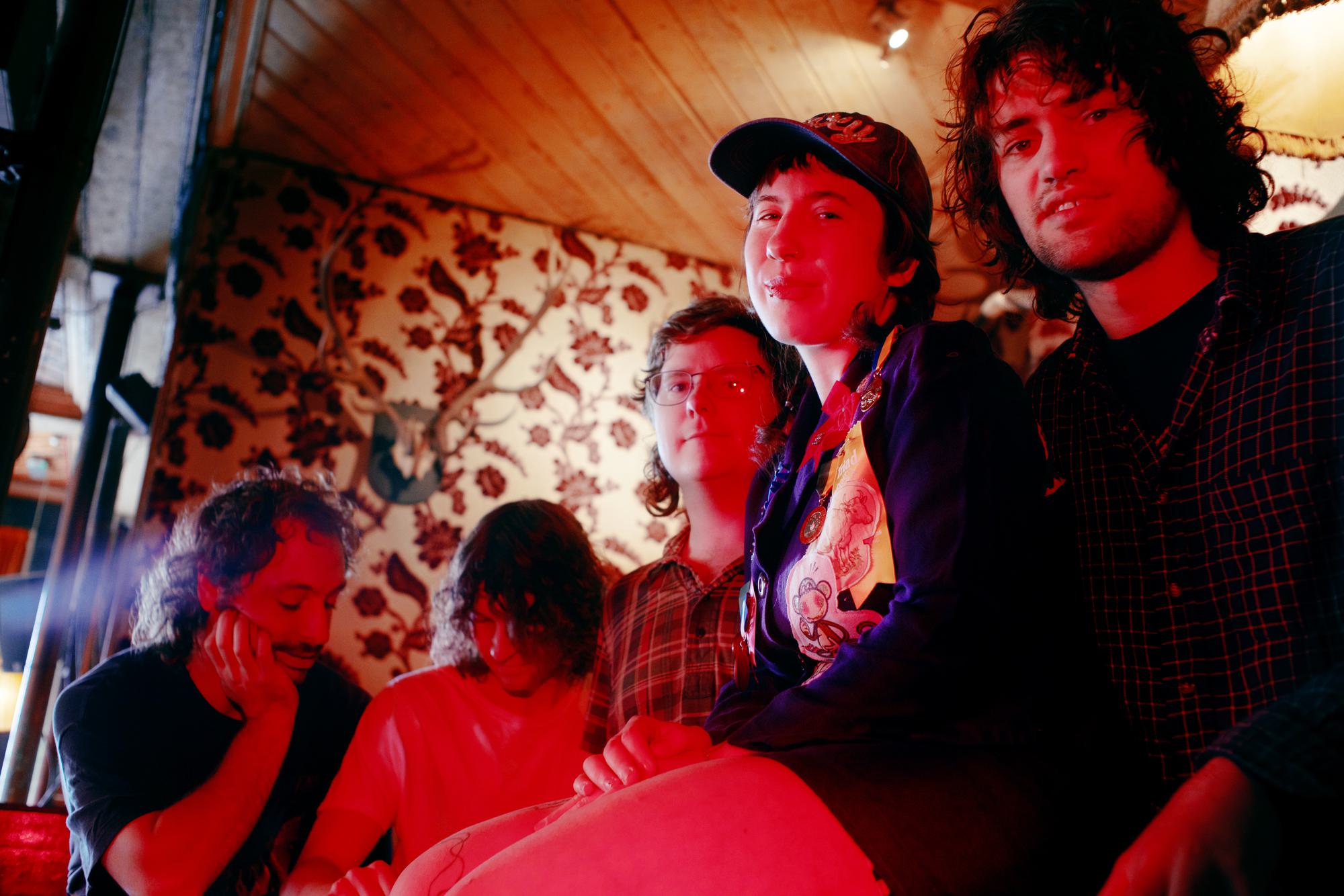
Georgia-born writer Flannery O’Connor once wrote: “Anything that comes out of the South is going to be called grotesque by the northern reader, unless it is grotesque, in which case it is going to be called realistic.” There is something of Hartzman’s writing that is built in O’Connor’s image: the attention she gives to the ugly or the left-behind, the stories with casual violence and tragedy. But this is all she has ever known: “I’ve been told that some of the stuff I write is creepy, but initially, I didn’t see it as creepy at all.”
To call the people in her stories “grotesque” in the literary sense distracts from their humanity and the very real circumstances they live in. Hartzman tells me about the enormous homeless population in her area, and how they would often walk up to her porch, sit down and talk for a while. She recalls a particular lady who joined her and her friends at three in the morning after she heard them playing guitar. “She started singing this song she wrote, and it was the most gorgeous voice I’d ever heard, like a trained singer,” she remembers. The next day, they’d spotted a flyer on a post downtown with the woman’s face on it: she was wanted for the murder of another homeless man. She still has the woman’s song on a voice memo, and her encounter has lodged in her mind: “It sounds like in another life, she probably could’ve ended up doing what I do now, I don’t know…”
There are plenty of cracks in the experience of the American South that Hartzman prizes wide open with a crowbar. The fire-and-brimstone billboards that litter the highways are Wednesday motifs, which have always fascinated her particularly with the distance of growing up Jewish. Growing up, she would go to on Bible School vacations just to hang out with her friends. “Jake grew up Catholic, and when I talked to him about the way he felt about existing as a kid and having thoughts that are so normal, it made me feel so bad for him. I wanted to just wash off his brain, because I was like, ‘Damn, all the people that you’re supposed to look up to in your life are telling you to be ashamed for all this really normal stuff?’ There is a darker side of it. Here, I want to get something from the other room real quick,” she says. She returns with a mug that declares: ‘Christ died for you.’ Hartzman points out incredulously, “Just, like, imagine drinking your coffee out of this! I’m really inspired from a writing perspective about how insanely embedded that attitude is in our culture.”
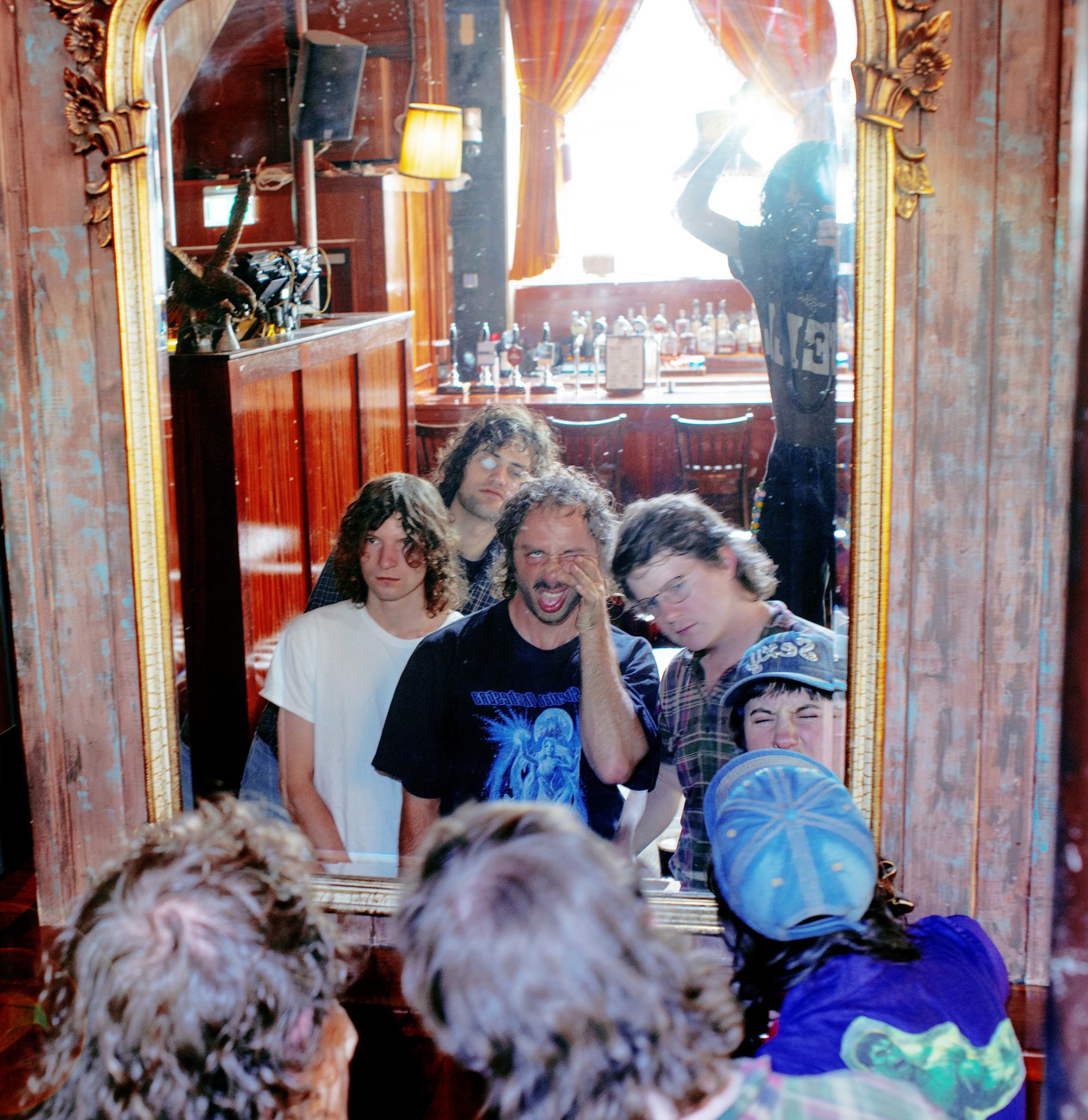
But all of this is home. “There are other ways that the Southern relationship with Christianity can manifest in a way that’s really beautiful and really lovely. There’s a way of life in general here that’s just very comforting to me, and unlike anything else I’ve ever experienced. It’s generous and self-sacrificing. We’re known for this violence and horrible ideology, but the other side of that is we’re in a culture that is the most giving and loving, especially to strangers, that I’ve ever seen. That’s the stuff that you don’t see being talked about as much, and a lot of the crazy shit feels like it stemmed more from people just being ignored and lonely. It’s so much more complicated than you would think,’ she tells me.
I make the obvious remark, at the end of our conversation, that Hartzman is full of stories. “The thing is, I think most people are,” she shrugs. “It’s just a muscle you can train to think about your life. I think it’s worth anyone trying to think about their life as a story. Even with what I was saying earlier about having to shoot that fucking thing in my ear to get the wax out – it wouldn’t make a good song, but it’s just the way I’ve trained my brain to remember parts of my life. Shit is happening to people all the time, even when you’re coming home from work and you see something insane on the street. We’re so desensitised to it all, but if you wrote it down and looked at it a month later, you’d probably realise just how many great stories you have to tell.”
Get the Best Fit take on the week in music direct to your inbox every Friday

Lorde
Virgin

OSKA
Refined Believer

Tropical F*ck Storm
Fairyland Codex





